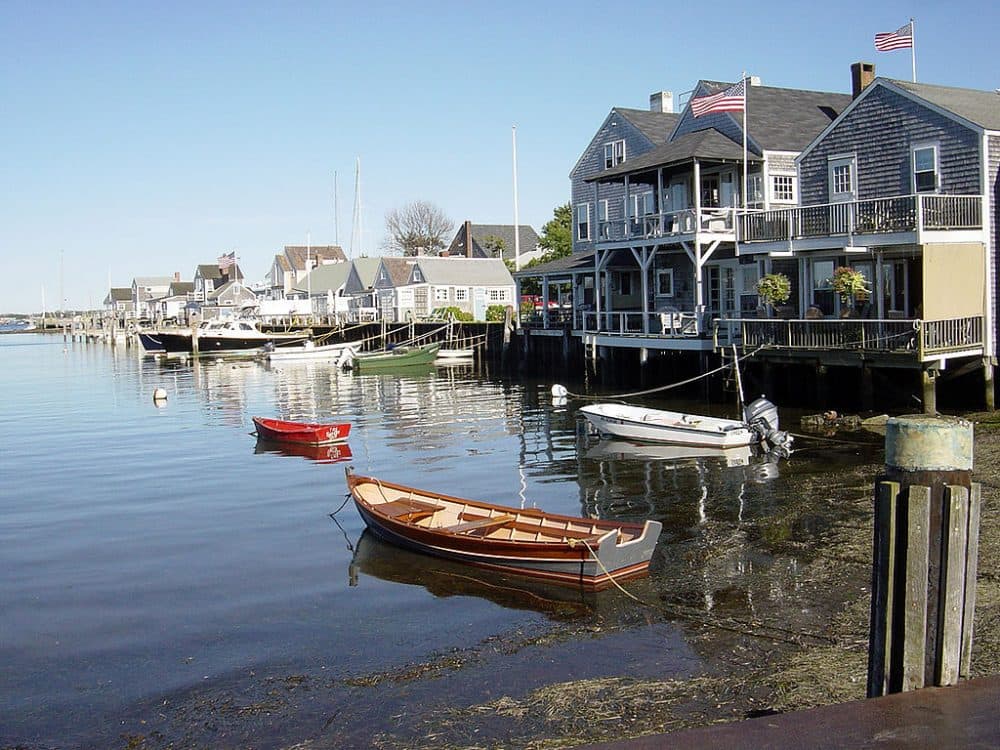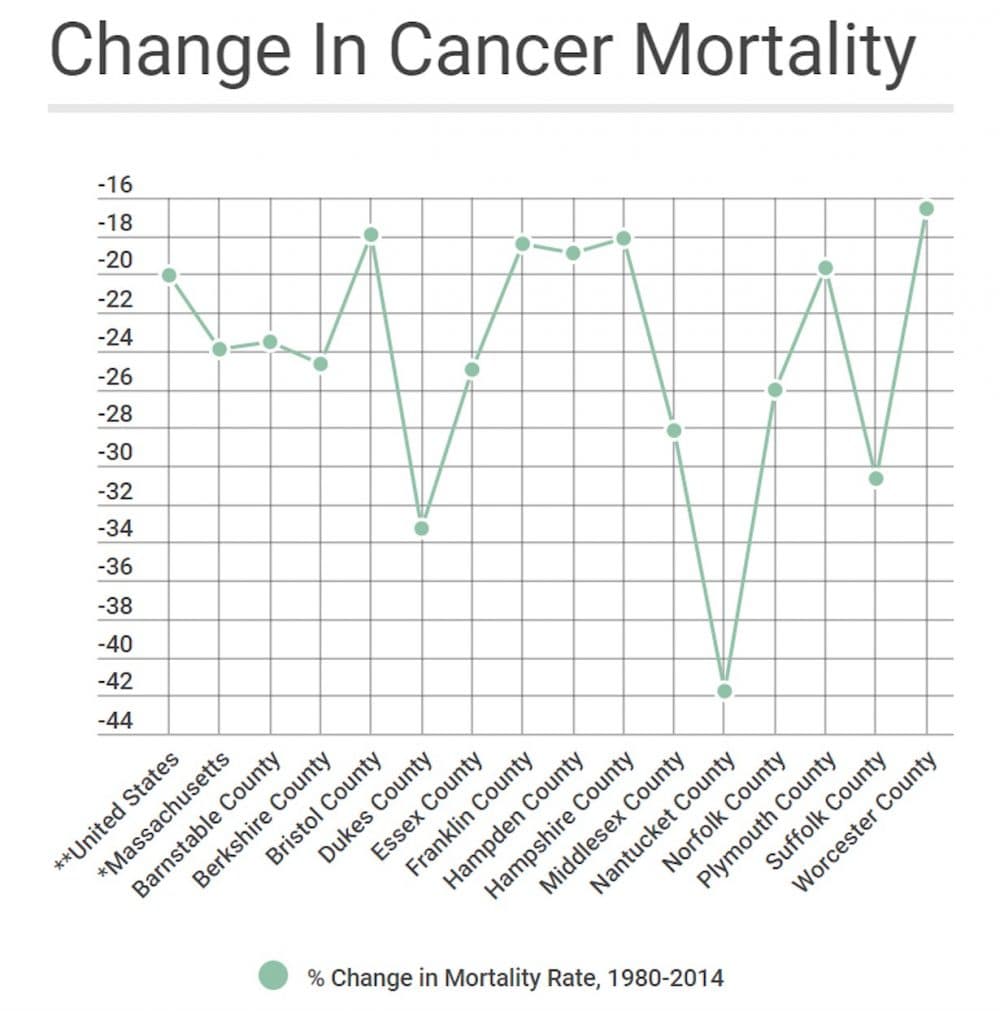Advertisement
The 'Nantucket Effect'? Latest Cancer Stats Find Island's Death Rate Has Plummeted
Resume
This story is part of our "This Moment In Cancer" series.
You may have heard of the "Roseto Effect," referring to a famous community of Italian immigrants in Roseto, Pennsylvania — made even more famous by Malcolm Gladwell — who get shockingly few heart attacks, apparently because their social ties with each other are so robust.
Well, the latest county-by-county cancer statistics suggest there may be something of a "Nantucket Effect."
Cancer death rates are down nationwide, the study in the journal JAMA finds, but on the island of Nantucket, they've plummeted so dramatically that Nantucket County ranks in the top 10 counties that have cut their mortality the most. I spoke with WBUR's Bob Oakes on Morning Edition as we wrapped up the first set of stories in our yearlong series, "This Moment In Cancer." Our conversation follows, lightly edited for clarity and time.
BO: So first of all, tell us about the numbers.
CG: The big picture is 600,000 Americans a year are still dying of cancer. But over the last roughly 25 years, cancer mortality rates have dropped by at least 20 percent nationwide, and Massachusetts is even better — mortality rates are down by about 24 percent.
BO: And as an explainer, by mortality rates, you mean how many deaths per 100,000 people.
Exactly. And parts of the country are not looking so good — especially parts of the South, where there's more smoking and obesity. Cancer death rates are still really high there. But other parts have seen really impressive improvements.
BO: Such as Nantucket?
Exactly — the windswept island of Nantucket. While statewide death rates are down 24 percent, Nantucket's are down 42 percent, one of the most impressive drops in the country according to that new paper in the journal JAMA.

BO: What do we know?
The lead number-cruncher on this new study, professor Ali Mokdad at the University of Washington, says there are several factors involved in cancer death rates: more education can bring them down, more access to health care, better treatments delivered sooner. But what's most important is preventable risk factors like smoking, alcohol, obesity and physical inactivity. Mokdad says these preventable risk factors account for more than 50 percent of premature mortality.
BO: So is this saying everyone on Nantucket quit smoking, stopped drinking, lost weight, and hit the gym?
I think we'd have heard about that if they did. Nantucket Director of Public Health Roberto Santamaria says the island did start pushing back against smoking relatively early, so that could be reflected in the cancer drop.
But, Sanatamaria says the real key to these numbers is that Nantucket is a small place — the year-round population is only about 10,000, and back in 1980, it was half that. So, he says, the first thing to keep in mind is that this dramatic drop in Nantucket cancer death rates is probably at least, in part, an artifact of statistics. When you have really few people and you get, say, a case of a rare cancer, and you have to project that case and multiply it to get the rate for 100,000 people, it can make little random blips loom too large. Then, as the population grows, the rates become a more accurate reflection.
BO: And I imagine that growth in the Nantucket population also affected other factors, like access to medical care.
Definitely. A growing population was able to support more health care facilities. Here's what Santamaria says:
As the community got a little bit bigger, and the hospital got a little bit better at providing services, and more people started coming here, more prevention strategies started happening. We have more access to doctors now than we did 30 years ago. So we're catching cancers earlier.
He says Nantucket has basically doubled the doctors it has over the last 15 years or so, though they still have a shortage.
And about four years ago, Dr. Richard Penson dramatically ramped up a program to bring Massachusetts General Hospital cancer specialist services to Nantucket Cottage Hospital. Like Santamaria, Penson is cautious about these striking new numbers on the drop in cancer deaths — but he, too, sees big gains from more preventive and prompt care, including surgery:
The big changes are people getting to the right people and getting the right surgical interventions. The curative strategies for earlier cancers are probably the most important thing. And preventive strategies against obesity — diet — and the big, big ones, sexual practices and pap smears and smoking and lung cancer.
BO: So — they're saying that prevention plus early detection plus easier access to care — that's the recipe?
And one more thing: Roberto Santamaria says it really makes a difference that Nantucket is still a pretty small, tight-knit community where people keep an eye on each other — because that could mean they help each other catch cancer earlier."You're running into your primary care providers at the grocery store here," Santamaria says. "So you get situations where you're telling people 'Hey, this is what I feel,' and it's just 'Come to my office, let's take a look.' "
So that might be the secret ingredient in this Nantucket recipe to cut cancer deaths — community.
This segment aired on February 3, 2017.
